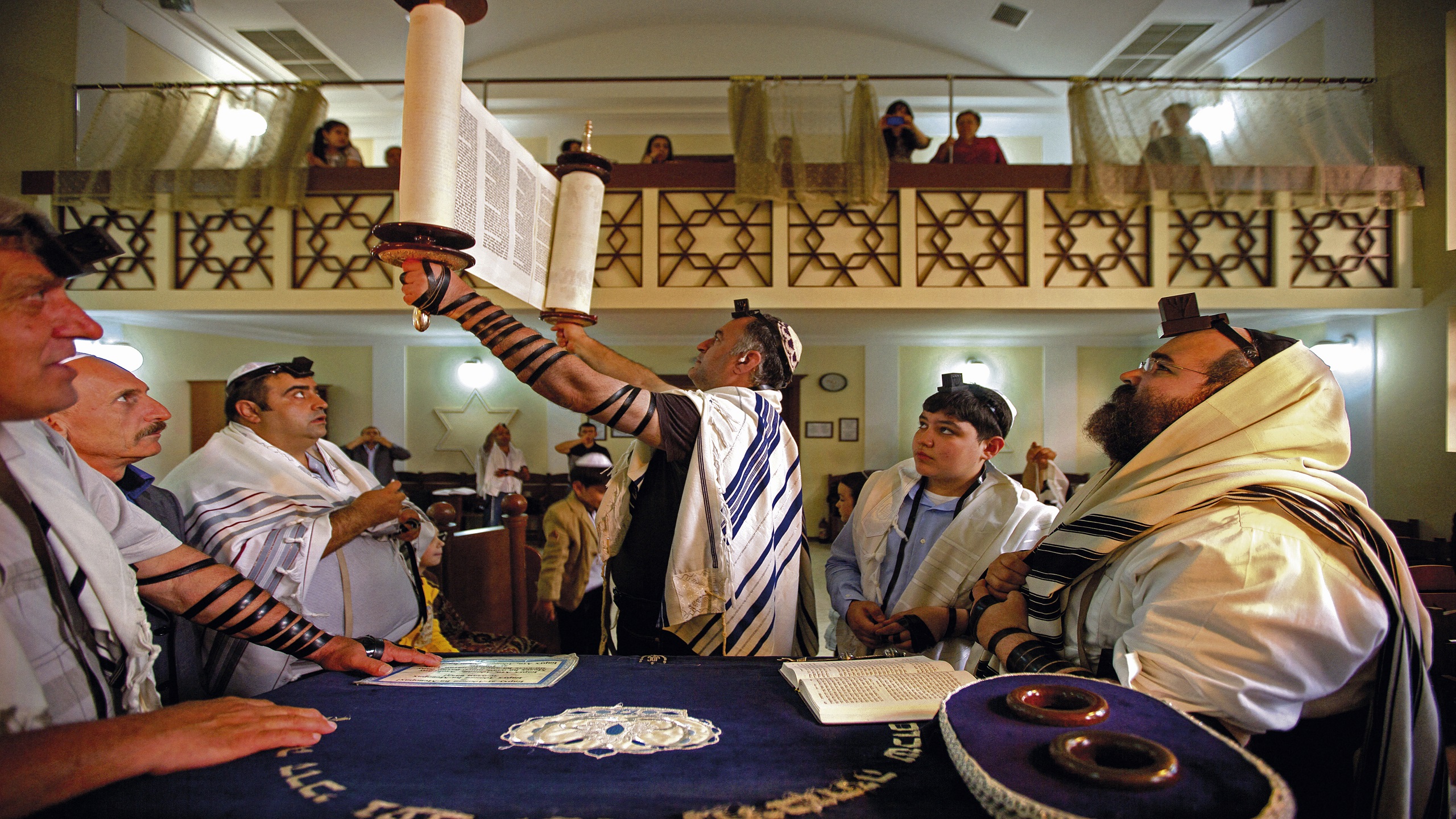‘We Feel Safer Here Than in Europe’: Unique Jewish-Muslim Ties in Shiite-Majority Azerbaijan
Although Jews make up just 0.1% of Azerbaijan’s population, they experience very little antisemitism in the former Soviet state
With rates of antisemitism on the rise around the world, the West Asian nation of Azerbaijan stands out as one country with a positive relationship with its Jewish citizens, one of the country’s chief rabbis told The Media Line. “It’s because of the very high culture and intelligence of Azerbaijan’s people, and of course the Azerbaijani government, which ensured that religion wouldn’t be tied to politics, maintaining an overall secular approach, despite being a Muslim country,” Zamir Isayev, the chief rabbi of Azerbaijan’s Sephardi-Georgian Jewish community, said.
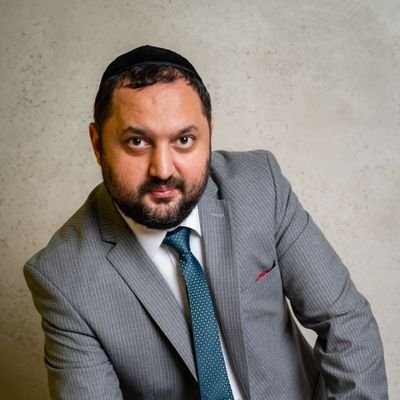
Zamir Isayev, the chief rabbi of Azerbaijan’s Sephardi-Georgian Jewish community. (Screenshot: X)
Azerbaijan’s Jewish community is one of the oldest in the region, with roots stretching back over 2,000 years to the Babylonian exile. This group has endured throughout Persian, Russian, and Soviet rule.
Historically, the country has been home to three distinct Jewish communities: European Jews, who settled in the area during the late 19th and early 20th centuries and during World War II; Jews from the former Soviet Republic of Georgia, who settled mainly in the capital city of Baku in the early 20th century; and Mountain Jews, whose presence in the region dates back more than 2,000 years.
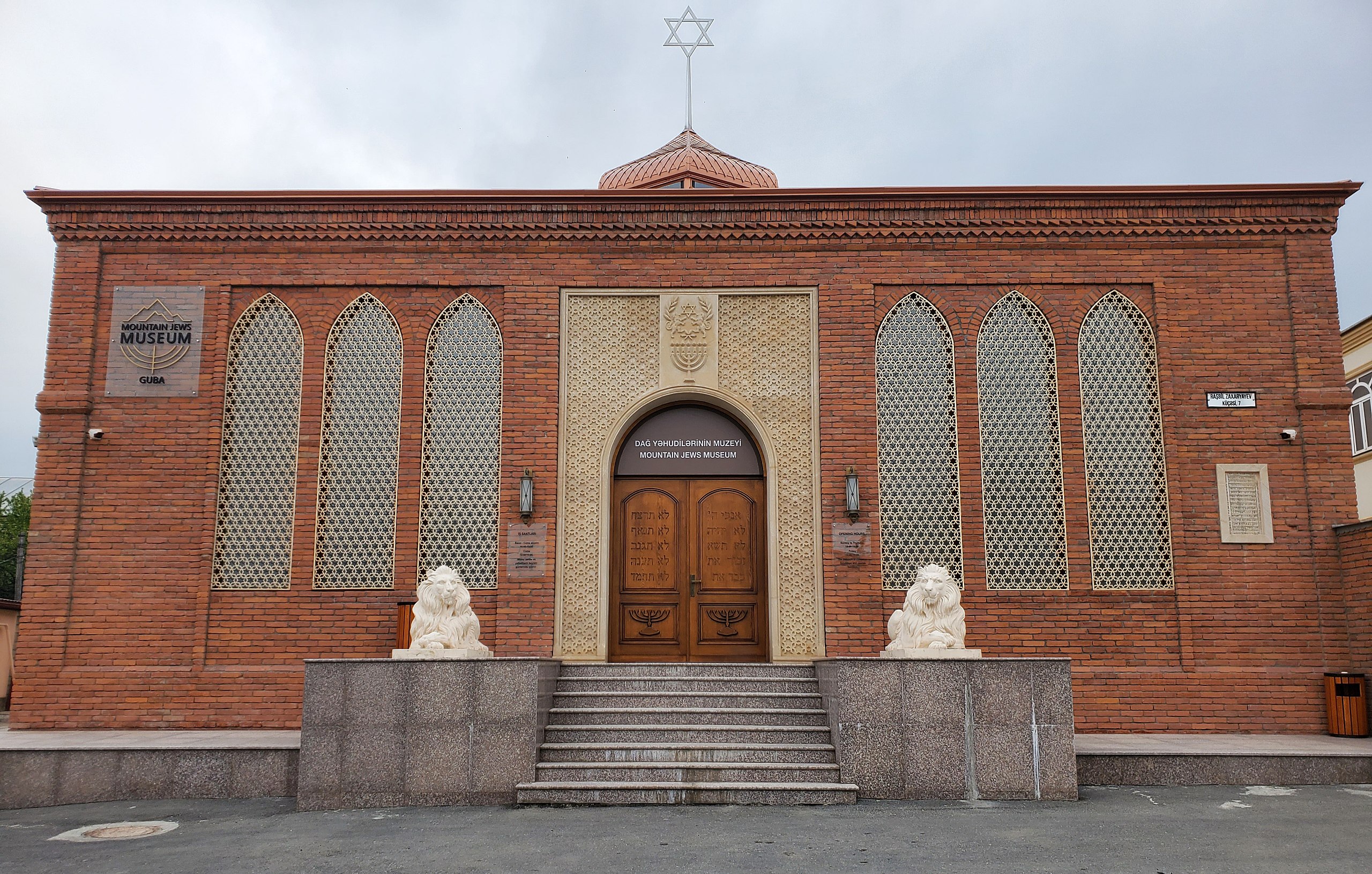
The Museum of the Mountain Jews in Guba, Azerbaijan, 26 April 2021. (Rajab Hasanbeyov/Creative Commons)
Today, approximately 30,000 Jews live in Azerbaijan, with most residing in Baku and in the village of Krasnaya Sloboda, which is called the “Jerusalem of the Caucasus.”
According to Rabbi Isayev, the community is served by eight synagogues, three of which are in Baku, two Jewish schools, two Jewish kindergartens, a kosher restaurant, and a Jewish rabbinical college.
“Aside from that, there is a Jewish member in the parliament for more than 25 years. This shows how integrated we have always been in this country,” Isayev said.
Give the gift of hope
We practice what we preach:
accurate, fearless journalism. But we can't do it alone.
- On the ground in Gaza, Syria, Israel, Egypt, Pakistan, and more
- Our program trained more than 100 journalists
- Calling out fake news and reporting real facts
- On the ground in Gaza, Syria, Israel, Egypt, Pakistan, and more
- Our program trained more than 100 journalists
- Calling out fake news and reporting real facts
Join us.
Support The Media Line. Save democracy.


Azerbaijani scholar Fuad Akhundov described Azerbaijani Jewish history as playing a vital part in the country’s culture. “Mountain Jews, Ashkenazi Jews, and Sephardi Jews have all shaped the fabric of our nation,” Akhundov told The Media Line.
Akhundov recently came to Israel to give a series of talks about the novel Ali and Nino, published in 1937 by the Jewish author Lev Nussimbaum. The novel describes a love story between a Muslim warrior and a Christian princess amid the backdrop of World War I and the communist revolution in Russia.
“This symbolizes perfectly the different cultural and religious influences that we still see today in Azerbaijan,” Akhundov said.
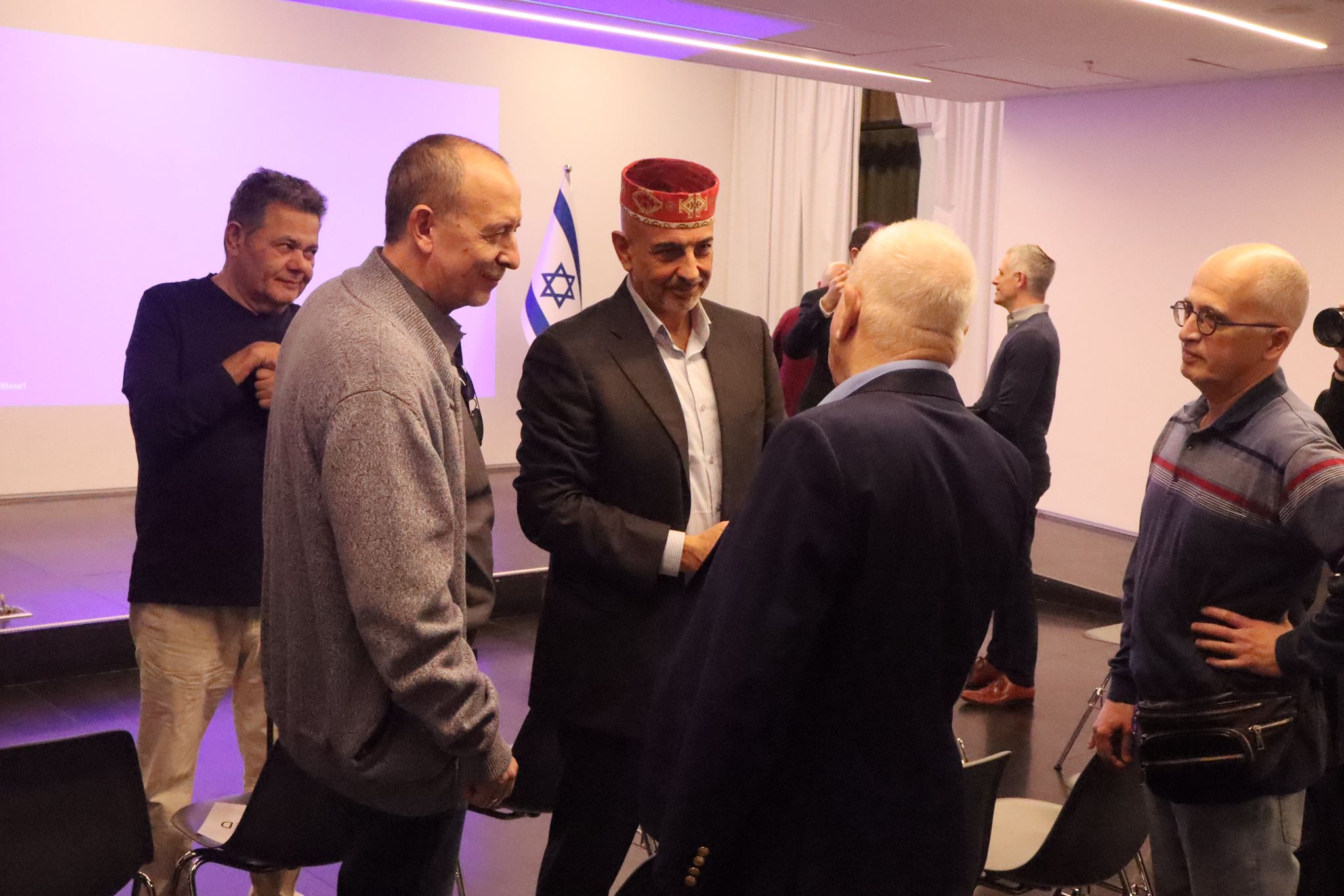
Fuad Akhundov greets audience members at a talk at the National Library in Jerusalem. (Courtesy Embassy of Azerbaijan to Israel)
He said he felt at home from the moment he landed in Israel for his book talks. “It’s rare to find such an immediate sense of belonging in another country,” he said. “As a Muslim and Azeri, I truly hope to expand even further my audience in Israel in the future, to present our mixed country’s heritage and intertwined histories.”
One of the most striking elements of Azerbaijan’s Jewish community is the community’s presence in Krasnaya Sloboda, which translates to “the red village.” Krasnaya Sloboda is considered to be the last remaining shtetl and is the only settlement outside of Israel and the US populated almost exclusively by Jews.
“It is a very interesting site since you see very close to one another a mosque and ancient synagogues,” Akhundov said. “Today, it hosts about 4,000 to 4,500 residents, since many moved elsewhere over the years. Despite this physical dispersal, there is a strong center of gravity. People return at least once a year to reconnect with their roots, visit ancestral graves, and maintain their identity.”
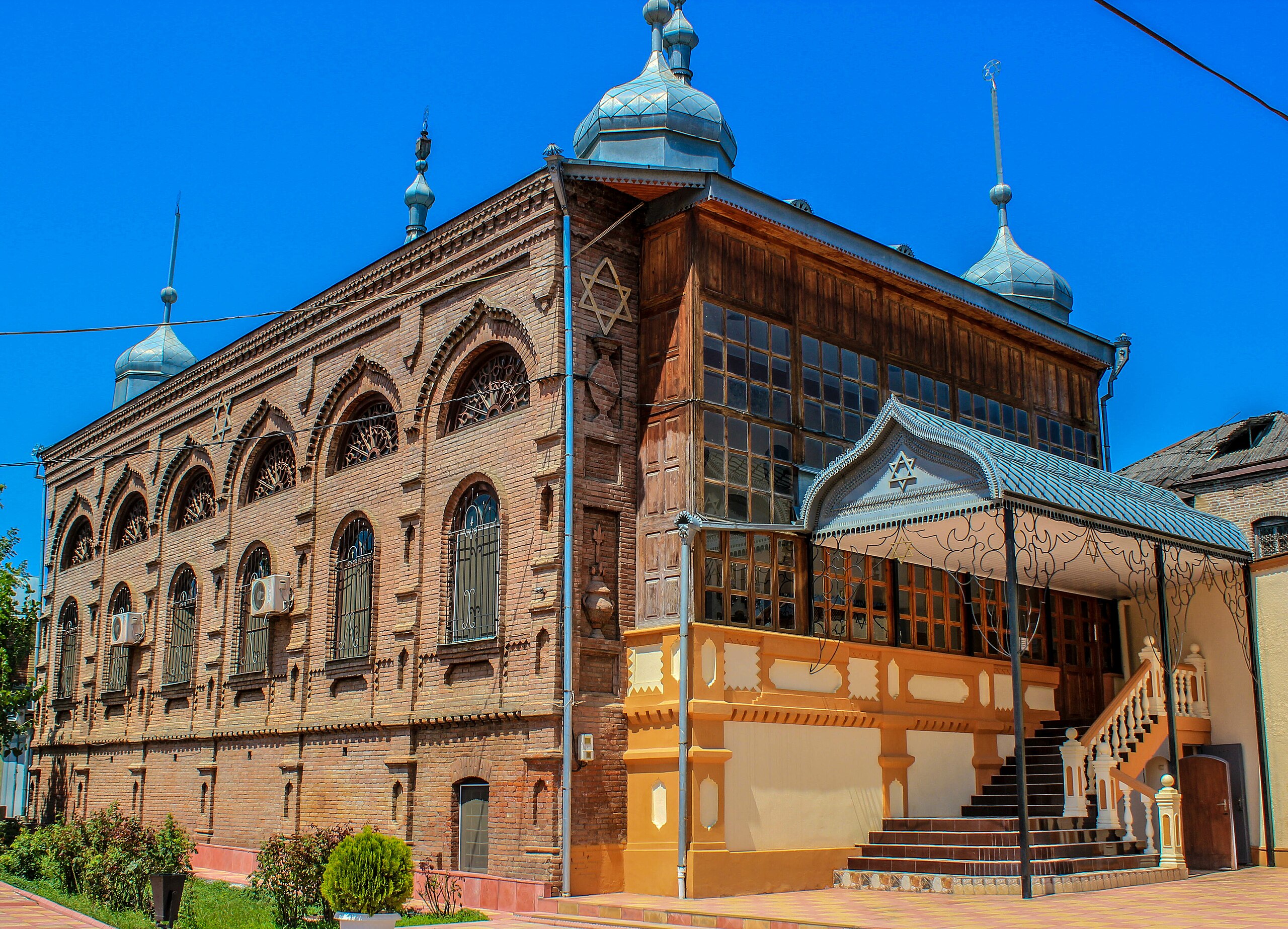
Six Dome Synagogue in Krasnaya Sloboda, Azerbaijan, 30 July 2019. (Asif Masimov/Creative Commons)
Azerbaijan is not only a hub of cultural and religious diversity but also a country that has maintained strong ties with Israel since achieving its independence from the Soviet Union in 1991.
Israel was one of the first nations to recognize Azerbaijan, and it now receives nearly 40% of its oil from the energy-rich state. In return, Israel supports Azerbaijan with cutting-edge technology and defense systems. Diplomatic ties between the two countries have also resulted in peacebuilding between the people.
“Azerbaijan showed that through a good educational system without signs of fanaticism and hate toward others, peacebuilding was possible,” Rabbi Isayev said. “Shia Muslims and Jews here show mutual respect to each other. … We feel safer here than in Europe now. This country could set an example to other Muslim ones.”
He also said that many Israelis have visited Azerbaijan since the October 7 attacks, recognizing the country as a stable place offering freedom and a lack of antisemitism.
Akhundov described both Israel and Azerbaijan as “islands of stability.”
“Both nations exemplify how to thrive despite challenges in their respective neighborhoods,” he said.
